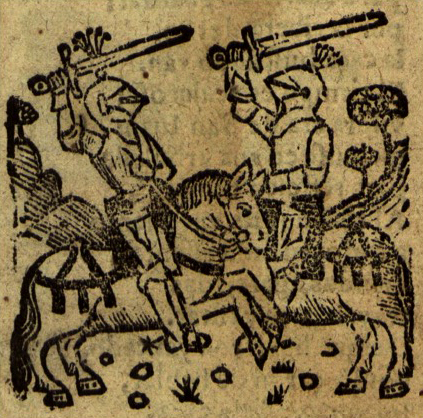
The project develops a programme for the (re)reading of the references to old Peninsular ballads “romanceiro” (an epic-lyrical genre with medieval origins and European balladry) that are part of the literary works of Portuguese authors of the 15th-17th centuries, as devices for the creation of ideological, poetic and musical effects that are almost unnoticeable to most of the public today, due to the scarce general knowledge of the old romanceiro.
Its objectives are:
1. to promote the examination and expansion of the knowledge about the romanceiro in Portugal in the 15th-17th centuries;
2. to re-launch the study of the interference of romance materials in their new literary contexts and consequently
3. to provide a rereading of the respective framework works, given that the crimped romanceiro verses create constitutive subtexts of these literary pages.
Started in January 2018, the project applies philological, comparative and intertextual framing methods, as well as tools from the Digital Humanities, developing its research across three fundamental vectors:
1. Periodic updating of the database structure, which makes use of open source technologies of international repute;
2. Bibliographical research and critical analysis of the objects of study;
3. Discussion of results and systematization of information in the database implemented for this purpose;
4. Preparation and presentation of results in digital support, material and video, as well as in scientific meetings and advanced training actions (see the already vast production in “Studies”).
It thus provides the currently most complete catalogue of references to romances found in works of Portuguese authorship (Database). Includes the references compiled in “Romances Velhos em Portugal” (Carolina Michaëlis de Vasconcelos, 1907- 1909) revised under the light of current knowledge that benefited from the discovery of new sources of the romanceiro and new perspectives in philology and literary studies in general. It also incorporates the partial contributions that covered part of the romances or framework works already inventoried by the philologist (Asensio, 1957 and 1989; Catalán, 1969 and 1970; Dias, 1974; Ferré, 1982-1983 and 2003; Araújo, 2004a, 2004b, 2011a, 2011b, 2014 and 2015). Finally, it encompasses the results of the team’s examination of editions, codices and other scattered manuscripts that have not yet been reviewed under this critical angle. Due to the digital nature of the inventory, it provides a powerful research tool both in the field of ancient romance studies and in the literature of Portuguese authors of the 15th-17th centuries. Its team is composed of young and more experienced researchers from the fields of literary and music studies.
RELIT-Rom was funded by the 2017 Calouste Gulbenkian Foundation Programme for Advanced Studies in Portuguese Language and Culture (Ref. 207951) and is being supported by the Foundation for Science and Technology through IELT.



